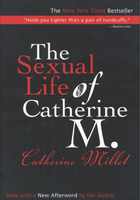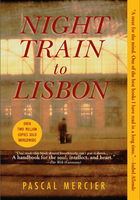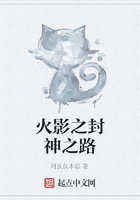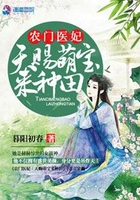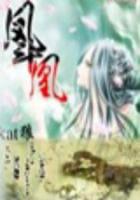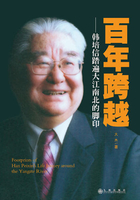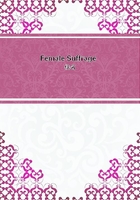Mun Becomes a Soldier
Now to Mun again. Generally, all that happened to Mun that was of consequence to me grew out of the great events of these times; of which I must keep a running account if I would have my tale understandable. For so much water has now flowed under the bridges of Severn, Thames and Tweed, mingled with blood, and so many allies have turned enemies, and enemies allies, that most men have clean forgotten how affairs stood at the beginning of our troubles.
I had first become acquainted with Mun in the March of 1637. He rode out again from Oxford twice in that same month, and once in April; but was ashamed that any should know that his principal object in coming was to see a little girl, such as I was, and therefore behaved himself circumspectly. The first time, by good fortune, I had the happiness of sitting alone with him for a few minutes in the arbour by the bowling-green, while my father and my brothers finished their rubber. We said little to each other but I basked in his company, and he seemed cheered by mine. The second time, though, all went amiss: for I was kept working in the upper dairy-house all afternoon, and saw no more of him than his plume bobbing along the road as he rode away. The third time, when he came to take his leave of the household, because his angry father was come to remove him from the University, I contrived that he should see me go into the primrose coppice, where I waited for him half an hour or longer; and at last he came and lifted me up in his arms and kissed me, calling me his pretty fairy, and confessed himself utterly ruined by his follies. He assured me that of all the faces that he had seen throughout the time he had been at Oxford, mine was almost the only one he would miss when he was gone. Mun asked leave to write letters to me; but I denied him that, for my mother would never let me hear the last of it, if he did. Then he proposed to write often to my brother Richard, instead, with a loving message to me each time.
"O, no, Mun," said I, "that will be no better, not the least thing, for Dick will make sport of me and call you my Conquest. Dick is not to be trusted with any such message. Write to Dick, by all means, and tell him how you do, but append no particular message for me."
"You desire no message from me?" he asked. "You despise me for the manner in which I have wasted my terms at Oxford, and hoodwinked my father?"
"No, sweet Mun," I replied, "for I believe that there is no malice in you, only a love of great company (which I confess I share) and not sufficient fortune to bear it up. I have no doubt but that you will make amends."
"It would be easy to avoid falling into despair," he began in a very urgent, sad voice, "if only I could think—" but there he left the sentence hanging. After a while he continued: "None of my friends or kindred have any good opinion left of me, and if I could think that one person at least in this whole land—" Here he could say no more.
"Oh, poor soul," said I, weeping. I stroked his face and told him that he was dearer to me than any of my brothers, or my parents even, and that there was nothing in the whole world that I would love better than a letter from him, if it could be contrived without vexing my parents, but so it could not; and that I knew well that he would never fall into the same course of folly again; and that I wished him heartily well, and thought of him fifty times a day, and would so continue, I hoped, to the end of my life.
These childish words of mine put him into a better conceit with himself, and he told me that he was commanded to go to a Mr. Crowther, late of Hart Hall, for whom his father had procured a country living in Buckinghamshire, and repair his wasted learning under his guidance. However, I guessed that Mun had already outgrown his pupillage, and that it would be hard indeed for him at present to return to the rudiments of school-learning, even when roughly drawn away from his fine new friends. Then he declared solemnly that he hoped to be worthy of my esteem, but that he was cursed by a very facile nature: being easily drawn into mischief, unless there was a nail driven through the skirt of his coat to hold him back to his bench.
I was too young to speak rationally to him, but I looked affection and confidence at him, which gave him satisfaction; and he told me, half in earnest, half in jest, that as yet he loved no woman, but that one day, if I made haste to grow, he would ask my father leave to many me. Meanwhile, I would be his little she-friend, and he my devoted servant.
At this I heard Trunco calling me from the yard, and I grasped his hand hastily and cried, "Farewell, Servant!" and ran towards the kitchen, while he went slowly off towards the stables to his nag; and that was all our good-bye for nearly half a year.
Within a month, Mun's tutor was taken ill and died, and he went to live with his uncle, Sir Alexander Denton, at a place called Hillesden in Buckinghamshire, and continued there for some time, helping his uncle with the management of his estate. Then, at the end of the summer, he rode over to see us, making it his excuse that he had a debt to pay at Oxford; and since he had meanwhile written three or four letters to my brother Richard, and always presented his dutiful respects to my parents, he was well received at our house. While he and I were together with the rest he teased me and talked big to me; but I took no offence, for as soon as we were alone his voice altered and grew tender. He was then in mind to go on a voyage to the Barbadoes with the Earl of Warwick, who had bought a plantation situate in the best and healthfullest of all those western islands. Many fine fruits were plentiful there, such as oranges, lemons, limes, plantains, pine-apples and guavas, with pepper, cinnamon and ginger, and cabbages that grew upon trees. The chief bread was potatoes, boiled and pressed, which were very nourishing and pleasant and did not weary the palate—not though one ate them at every meal. The greatest inconvenience of which Mun had heard was the land-crabs, which were thick upon the ground and would bite through a man's boot or nip off his thumb if he lay sleeping upon the ground; but there was also a great want of skilled labour, and of household stuff, both metal and linen, and the island lay at so great a distance from England that going there one might almost fancy oneself in the Moon.
In the end he did not sail, and for this reason only, I believe, that when he told me of it I wept and would not be easily comforted. I cried that I feared not on his account in the matter of the land-crabs, but that I hated the Ocean: he would surely be cast away and eaten by the sharks, either on his voyage there or as he returned. I do not know what excuses he made to his family, but he let them know that he had altered his mind. His elder brother Tom went in his place, but did not prosper and soon sailed home to England.
Meanwhile the Arminian clergy, led by Archbishop Laud (who had lately succeeded Archbishop Abbot, the unfortunate homicide) persuaded the King to lay such a uniformity of worship upon the Churches throughout his dominions as neither his father King James nor Queen Elizabeth had ventured upon. Ever since King Henry VIII quarrelled with the Pope of Rome, the Church had stood like a rickety table upon legs of uneven length, propped underneath with paper wads of tolerance and, whenever tolerance could not be granted to plain heresy, with wooden wedges of subterfuge; but now the Archbishop would saw the legs off even, and put the table level, and cast away the wads and wedges. Nevertheless, knowing the temper of the English people, he did not dare to foist his new Liturgy at once upon our nation, but thought it wiser "to try it upon the hound," as the phrase is, by ad-ministering it to the Scots, who were but a poor, small nation.
This proved a grand error, for the Scots had queasy stomachs and vomited out the Liturgy and ran and swore a Covenant together and, though the King was of the Royal House that they had themselves given to England, and though he had been born at Dunfermline in Scotland, yet they defied him. They challenged him to use force against them and called up their levies, which they officered with men who had seen service in the Swedish wars; and declared that, so far from accepting the Liturgy, they would not even acknowledge the rule of their own bishops who had recommended it to them, but would set church elders, or presbyters, in their place and govern the Church by assemblies.
When the first news of the uproar in the North came to the Court in London, Archie Armstrong, the King's Fool, meeting with Archbishop Laud on his way to the Council, forgot that the Bauble may not insult against the Mitre: he called him by a lewd name, and asked him, who was now the Fool? This jest was not taken kindly either by the Archbishop or by the King; and Archie, being hauled before the Council, was sentenced to have his Fool's coat pulled over his ears, to be kicked out of doors and never show his face at Court again; which was done, and his office given to another Scottish fool named Muckle John, who was a dull slouch, with a heavy eye and a hanging lip. It was a bold man who durst speak or write against the Archbishop, as our friend the learned Mr. Lambert Osbaldiston found about this time; who, for styling him a "little vermin and hocus-pocus" in a private letter written to the Bishop of Lincoln, was fined £5,000, deprived of his Mastership of Westminster School and sentenced to be tacked to the pillory by his ears in the presence of all his scholars. Yet Archie the Fool had the last laugh, for the Council that sentenced him is now abolished; and he has kept his head upon his shoulders longer than either the Archbishop or the King.
There was no remedy but that the King must take up arms against the Scots; and Mun was caught up into this war, such as it was. He was fitted out as a volunteer by Sir Edmund Verney, his father, who, being Knight-Marshal and Standard-Bearer to the King, marched to Scotland with the army that had been collected. The King had not summoned a Parliament, to ask money of them for the payment of his troops: for he knew that before they voted him any sufficient subsidy they would call upon him to redress the country's grievances, which had mounted pretty high in these many years of his governing without a Parliament. Besides, there was little love for our own bishops in many parts of England. Among the tradesmen and mechanics of London, and in the Eastern counties generally, it was openly said that the Scots were brave boys and did well to vindicate their rights. The King had written a letter to all the nobility, in January of the year 1639, calling upon them to bring their armed retainers to a rendezvous in Yorkshire. In answer, some nobles promised twenty horsemen and £1,000 of money; some £500 and five horsemen; some were wary and undertook to attend with as good an equipage as their fortune and the shortness of the time would permit; some pleaded poverty, reminding His Majesty of great debts owing them from his Treasury, and feared that they could send but little. In all, they did not offer much, and two noblemen, the Lord Brooke and the Lord Saye and Sele, refused together, unless Parliament should first give them the order—for which disobedience they were committed to custody. The Commons of every county and city were also called upon for free contributions; but the King's expectations were disappointed in the amount, the whole City of London offering no more than £5,200, about sixpence a head, which His Majesty considered paltry and refused with scorn. However, the clergy gave generously; for Archbishop Laud could draw money out of them by the screw of discipline, and told them plainly that His Majesty looked for a greater sum than in the ordinary way. Even our curate was expected to contribute £5, which was one-quarter of his annual stipend.
Early in March the Bishop of Oxford sent my father a letter for the curate to read out from the pulpit in Church: it was written by the King himself, and in it those Scots who had taken the Covenant were accused of being enemies to monarchy, and of a design to invade England. This letter roused some of the congregation, especially the women, to groaning and calling down the vengeance upon these treacherous foreign dogs. But the men of substance heard it with composure, and afterwards in the porch Goodman Flight said that he hoped His Majesty might be mistaken, because the Scots, in a paper which he had read, gave a contrary account of their intentions; nor did anyone present take up Goodman Flight, who was reputed to be a man of sound judgment, but many said that they hoped the same thing, and that by God's will the two Kingdoms would not come to blows. Tom Messenger, who was now again settled in the village, held that the Scots, being so small a nation, would be bold indeed to try conclusions with the might of England; and that if they came out against us it would not be without assurance that the Lord was on their side. He would have spoken further, but my father told him to have a care what he said, for many a man had been laid upon a hurdle for less matters; so Tom broke off and begged the company's pardon. In April we were instructed to pray publicly for the King's success, repeating the words after the curate; but there was no fervency in the congregation, though three men were already gone from Forest Hill to the war. These men, however, had been chosen by my father as the three most easily spared. Two of them were incorrigible drunkards and idlers and the third had strange notions that nearly fitted him for the lofts of Bedlam. For my father was loath that any honest men should, through his procuring, hazard themselves among the dangers of war.
The King delayed a long time at York before he moved up to Newcastle and there remained another long time, with his army of near 50,000 men, hoping to over-awe the Scots. But the Scots had bought good arms from Sweden, and now began to put themselves into a proper posture of defence, and called fervently upon God, the ministers beating upon their pulpits as upon drums and bidding their congregation "fear nothing, for the Lord is with His people." Drill-masters also went up and down the country, instructing men in the use of arms and in obedience to the commands of their officers.
While he was on the road to York, Mun sent my brother Richard a letter by the sixpenny post, which he read out to us at dinner as soon as he received it. In it Mun expected that the journey would prove but an ordinary progress, and that the King would receive the dutiful submission of the Scots at the end, and that then he should have the happiness to renew our acquaintance in the autumn season. But if it came to blows, he wrote, he had as good hopes of coming back safe as any other, though he would not be backward in the use of his lance and pistols; and promised that he would send us a faithful inventory of any Scots he killed. I was very unhappy for Mun's sake throughout that spring and early summer. In June he wrote again from Berwick-upon-Tweed, to tell us that the Scottish Army was strongly posted on a hill that commanded the road to Edinburgh, well exercised and served with abundance of provisions; whereas with the King's army, he confessed, things were very ill. The soldiers were so unhandy in the use of arms they handled pikes as if they were hay-rakes; and a shot from one of their muskets had already gone through the King's tent. It appears that my father was by no means the only magistrate who, when called upon by the Lord-Lieutenant of his county to send men, had sent those whom he could best spare and, indeed, thought himself well rid of. But many a man had cut off his great toe that he might not be able to march, or done himself other injury. Moreover, the officers were discomposed and unready and there was continual grumbling, outcry and swearing for the common lack of bread and good drink. Mun feared that if the Scots came against such an army they would shear through it like a sharp hook through ripe barley; and he thanked God he had a good horse under him which would carry him out of the ruck if there were a general flight.
The King, seeing how he was placed, was persuaded by his Scottish lords to agree to a reconciliation; and their fellow-countrymen, being privately assured of his change of heart, made a supplication to him. Mun's father was sent to their camp requiring certain submissions before the King would treat, which were not so severe as to prevent a treaty from being concluded, known as the Pacification of Birks. In this treaty the Scots asked the King's pardon for angering him, but the King indulged them in all that they asked, namely, free parliaments and free annual Assemblies of the Church, by which Scotland should be governed in all civil and ecclesiastical matters whatever, without interference. Then both armies were disbanded, and it was like the break-up of a school for the summer holidays, with shouting and yelling and horseplay.
This, then, was a war without bloodshed, except among the dogs of Aberdeen: for Aberdeen alone would not swear the Covenant, and the ladies there in contempt of it tied the blue colour of the Covenant in ribbons about the necks of their dogs, and the Covenanters caught the poor beasts and killed them. My father was soon afterwards shown a letter from a Groom of the King's Chamber, in which he wrote that he and his fellows had found the time long and tedious, the weather continuing wet and cold for weeks on end. And he added: "Yet we kept our soldiers warm with the hopes of rubbing, fubbing and scrubbing those scurvy, filthy, dirty, nasty, lousy, itchy, scabby, slovenly, snotty-nosed, logger-headed, foolish, insolent, proud, beggarly, barbarous, bestial, absurd, false, lying, roguish, devilish, long-eared, short-haired, damnable, atheistical, Puritanical crew of the Scottish Covenant. But now there is peace in Israel." There was more to the same effect, which my father said was not convenient or decent to read out to us.
The troops were disbanded and made their way back, and it was a long trudge, and of the three men from our town, the mad one died on the way from a fever he caught from lying in wet clothes, and the two rogues arrived hungry and barefooted, almost naked, having had to part with their clothes in order to buy bread by the way. They reported that they had not been altogether sorry to part with their clothes, for they were full of those creeping things, called "Covenanters," which had swarmed into the seams while they starved in the Scottish camp. But Mun came home without inconvenience.
One fine day, dressed in his buff coat of leather, he presented himself at our house. He was on his way to Oxford, where he purposed to see the Act for the creating of Doctors of Arts. This time he was an altogether different Mun from the poor humbled ignoramus of Hart Hall whom, a little more than a year before, I had befriended and comforted. He was a hearty, gallant soldier who held his head erect and stood in no need of consolation. Nor was I the child I had been; and yet not a grown woman, but something between; so that he found it not easy to speak with me and, as I thought, he avoided to be left alone with me lest I should mistake his friendship for courtship. This grieved me wonderfully, though he gave me no cause for offence, not teasing me in company, but addressing me kindly and soberly.
He was now an ensign in the company of Sir Thomas Culpepper, which would soon sail to Flanders to join the army of the States-General; and told us that though he had a few creditors still at Oxford he had sufficient money to settle with them all, and that then he should be free with all the world and (here at least he stole a quick glance at me) he would endeavour so to keep himself while he yet breathed. He brought us a tale that made us laugh, how a London merchant of his acquaintance wrote to his factor in Surat Castle, which is in India, and desired him by the next ship to send a parcel of conserved lemons, two great jars of oil of cinnamon and two or three apes; but this merchant forgot the r in or, and then it seemed to be 203 apes he desired. The factor sent him four score apes, and wrote on the bill that the 123 remaining should sail by the next ship. Mun said how great a pity it was that the four score had arrived too late to be sent against the Scots, for they were beasts with strong arms and great teeth.
Before he rode off he kissed the little children good-bye, and then turning to me he said with a smile: "Mistress Marie, you're too great a child for a kiss, I expect." And like a fool I answered: "Yes, I am no child now, Ensign Verney!" So he did not give me what I longed for with all my soul, but rode off smiling, and I knew that now he would write no more to Richard or to any member of our household. I went upstairs to my chamber to weep on my bed, but found Zara there, combing her hair with my comb. So I took it from her and thumped her and then went out again, very wretched, to tell my troubles to the geese in the orchard.
Mun was in no battles or sieges in Flanders; and in such a case an officer without interest has little hope of preferment; for there are no dead men's boots to draw upon his feet. Moreover, no captain cared to have so honourable an offer as Mun as his lieutenant, for it went against his conscience to make a fraudulent muster, by which the captain might draw pay in the name of soldiers who were dead or who had deserted the service. False musters were customary in the Army and the cheat was seldom found out; for the Colonel was given his share of the money earned thereby, and if ever a captain were desired by the General to show his company in full strength, soldiers could always be borrowed for the day from another. In the winter of that first year Mun was quartered at Utrecht, where there is a University; and here for many months together he studied seven or eight hours a day to amend his knowledge of Latin and French, and learn the art of fortification and other matters profitable to a soldier. But of this I knew nothing at the time.
Meanwhile, the King took his defeat at the hands of the Scots very ill, and prepared for revenge and consulted constantly with a junto of Ministers from his Council. In the end he was so hard pressed, not knowing where to turn for money, that he resolved to call an English Parliament (which he had not done since the beginning of his reign), hoping to manage it with fair words and a pretence that the Scots intended a dangerous rebellion—though what need they had to rebel when, at the Pacification, they had won all that they needed, did not appear. In April, 1640, two days before Parliament met, the King made play with a letter addressed by the Scottish leaders to the French King in which they asked for his interest in the affairs of their nation. It was true that they did not ask for his armed help, and perhaps sought only his mediation; and it was also true that the letter had been written before the late troubles; and, again, that it had never been sent, but was a mere draft. Nevertheless, it read like treason, so he commanded those Scots to come to London; and when they prudently stayed where they were, this was disobedience and justified the war that he had in mind.
The Parliament assembled; but few of its members glowed with loyal anger against the Scots, and by a majority it was decided not to discuss the twelve subsidies that the King required immediately, to pay for his war, until he should have given answers to other questions that Members might desire to ask him. They then compiled a long roll of abuses with which they charged him and his Ministers, and demanded amendment; so in anger he dissolved the Parliament when it had sat but three weeks. Yet money he must have, and he milked the clergy again, and sold patents and monopolies, and increased the rates of the Excise, and called upon the City of London for a great loan of £200,000, first demanding from the aldermen of each ward a list of citizens able to subscribe—yet for all his urgency they found him no more than one-fifth of the sum he required. He also levied ship-money, coat-and-conduct money, and I know not what other taxes and imposts besides: by which my father felt himself hard pressed, and went about as though he had a whitlow on his thumb. Few dared to oppose the King openly; but things done in ill-humour or without stomach are never done either speedily or well, and the three men whom this time my father sent to the war—the two former men and another who had become a charge on the parish, because he was a tailor and his sight was failing him—these were commiserated and pitied as though they were going to the block to lose their heads; and they held back from going until a sergeant came up from Oxford to take them by force.
In May, Mun, together with other officers, had been called from The Hague, where he then was, and given a lieutenancy in a disorderly company of foot that were to march against the Scots. Many of his soldiers had been sent to the war as a punishment for their Puritanical fervour, which was an ill reason; for on their way to the North they were a shame and trouble to him. They would break into churches, and if they found anything there not to their liking, they would set all to rights: wrenching up the altar rails, dragging back into the middle of the church the Communion tables, of which Archbishop Laud had made altars at the east end, carrying away candles that they found burning to no purpose, and tearing up surplices to make them handkerchiefs.
The Scots had early intelligence of something being prepared against them, and called their army together again, and prostrated themselves humbly before their God, and encamped in the same place as before. All their preparations were made by the middle of August, by which time the King's levies were still in a straggle towards the Border—ill-armed, ill-fed and most unwelcome to the inhabitants of Yorkshire and the other northern counties, where the year before they had eaten up much good pasture and carried off corn and pigs and poultry with no "by-your-leave" nor any payment but curses.
The Scots' orderly army would not wait for the King to marshal his men for an attack upon Edinburgh; but they boldly forded the Tweed at Coldstream, with their snapsacks of oatmeal upon their backs, and marched into England. They were well provided with artillery, and there was a sufficiency of muskets, except among the naked Highlanders who carried bows and arrows instead; but they wore no body armour, which was rightly judged a greater burden in marching than it was a protection in battle.
This was a strange invasion indeed: for no rapine nor plunder was permitted, but the Scots behaved as sedately as choristers in a solemn procession, protesting that they came only as friends to comfort their fellow-sufferers of England who stood under the same dangers to their religion and liberties as they themselves did, and undertaking to take nothing from them, not so much as a chicken or a pot of ale, without paying for it in lawful money. They hoped that the English would concur with them in this most just and noble way of obtaining the just and noble desires of both nations.
A few thousand men of the King's army were posted about four miles above Newcastle on the southern bank of the Tyne, to deny the passage; but when the Scots came up, neither army was disposed to pick a quarrel, for there had been no enmity between the two nations, I believe, since the time when the King's great-grandfather, a Scottish King, had been slain at Flodden Field. The horsemen of both armies watered their horses at the same stream, though from opposite banks. At last a drunken English musketeer discharged his firelock at a Scottish officer across the water, and so the truce was broken. Other muskets popped, and the Scottish ordnance roared off, each piece being recharged as often as once every three minutes, and the English fled from one of the two trenches that they had been digging; whereupon, the tide being low, the Scots forded the stream and the English fled from the other trench also. Some squadrons of our English horse stood their ground, but finding themselves alone and almost surrounded, went off after they had lost two or three score men. The Scots had a huge advantage in their ordnance, which disastrously outnumbered and outshot our own, the cannoneers who served them being as skilful as bell-ringers in touching them off. Besides these great pieces they also brought up many of those portable and dangerous iron guns, no more than four foot long and of their own invention, that carried a bullet of two or three pound weight and were deadly at 300 paces.
The Scots swarmed along the road to Newcastle, whither Mun's regiment had come from Yorkshire, by forced marches, two nights before. He found horrible confusion in the streets of Newcastle, where nothing was prepared, and his soldiers were hastily set to improve the fortifications where they were ruinous; who worked almost without ceasing, both day and night. Yet then Mun's company had orders to abandon the works and march out again, for the case was hopeless; and for want of horses nearly all their baggage was left to the enemy. Back they straggled to York, as quick as they had come, or quicker. The Scots did not, for pity, press upon the rout, as they might have done; but considered it prudent to occupy peaceably the counties of Northumberland and Durham, and there possess themselves of all the coal mines and stocks of coal, which was ill news at first for the coal merchants of London and for housewives and bakers who depended upon coal to heat their ovens. However, the Scots kindly refrained from any interruption of this trade, so that they won great praise for their forbearance. As for Mun, he lost all the possessions that he brought with him, but except only the clothes that he wore, which were the very worst he had, and he got nothing back but, some months later, one trunk out of his three.
The Forest Hill men deserted their ranks and each in turn made his way back, so that they were all home by Christmas to eat their plum-porridge. Our constable charged them with being deserters, but when my father examined them they deposed that their officers had fled, who had never given them a penny of the pay due to them, and very little meat or drink for their bellies; so my father discharged them. The two rogues returned to their tippling and idleness; but the tailor found his eyes strengthened by long absence from the needle and my father made a woodman of him, and he proved of good use to us.
Of the nobility and gentry, our neighbours, most were very hot against the Scots, but hotter still against the English traitors who had been in league with them: for it was common knowledge that those in. England who hated Bishops and did not love the King had encouraged the Scots to march.
The King, being then petitioned by the Scots to call an English Parliament, was in no posture to deny them, and Parliament was called; which is the same Parliament of which I wrote in my first chapter that Sir Robert Pye the Elder was a member. Indeed, it is the same Parliament whereof a poor remnant still rules at Westminster, after twelve years, having since done great and terrible things. In those days Parliament was generally well disposed to the Scots, and liked that they should remain in England until a treaty could be signed agreeable to both nations; and most members did not grudge that they should be paid at the rate of £850 a day while they remained, if so the King might be over-awed into obedience to the will of Parliament. Yet there was this inconveniency, that a residue of the English army remained at York which for shame's sake they could not disband, and must pay likewise; this army they were not careful to pay so regularly as the Scots. Then they busied themselves with providing for the security and perpetuation of the Parliament; with abolishing the Courts that had been the instruments of the King's arbitrary power; with asserting again the ancient right of the People not to be taxed without the common consent of Parliament; with abolishing monopolies and patents; and finally with restraining and limiting the power of the Bishops.
Mun continued with the broken army in York, ill at ease and out of pocket; and he was there in that Christmas season of 1641–1642 when, as related in my first chapter, my godmother, Aunt Moulton, gave me my vellum book. Here at last I have caught up with the beginning of my story, where I made too hasty a start, and will undertake never to go backward in it again.


